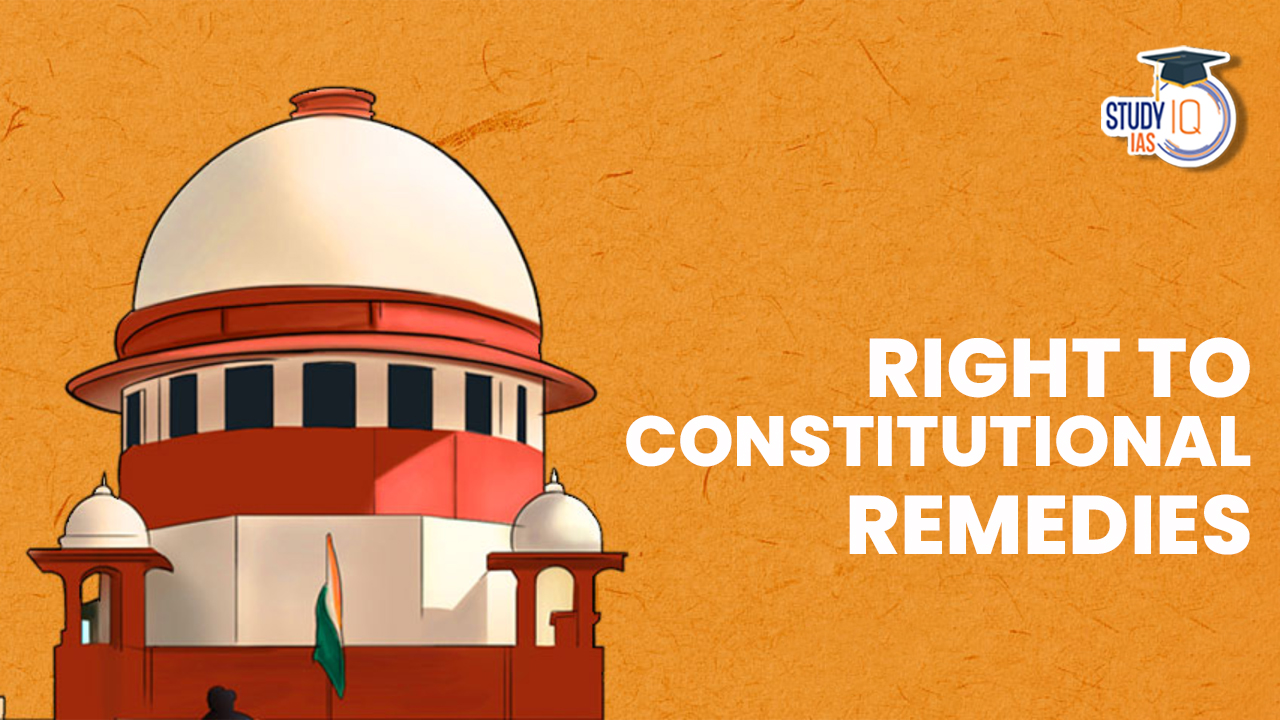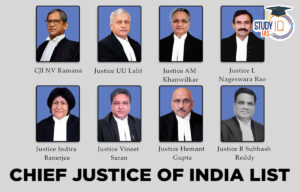Table of Contents
Right to Constitutional Remedies
The term “right to constitutional remedies” typically refers to a fundamental right granted to citizens in India. It is a crucial element of constitutional law and provides individuals with the means to seek legal redress when their fundamental rights are violated by the government or any other entity. The right to constitutional remedies ensures that citizens can approach the courts to protect and enforce their fundamental rights as enshrined in the constitution.
Right to Constitutional Remedies Articles
The right to constitutional remedies is explicitly mentioned in Article 32 of the Indian Constitution. Article 32 states:
“Remedies for enforcement of rights conferred by this Part.—
(1) The right to move the Supreme Court by appropriate proceedings for the enforcement of the rights conferred by this Part is guaranteed.
(2) The Supreme Court shall have power to issue directions or orders or writs, including writs in the nature of habeas corpus, mandamus, prohibition, quo warranto, and certiorari, whichever may be appropriate, for the enforcement of any of the rights conferred by this Part.
(3) Without prejudice to the powers conferred on the Supreme Court by clause (1) and (2), Parliament may by law empower any other court to exercise within the local limits of its jurisdiction all or any of the powers exercisable by the Supreme Court under clause (2).”
This article empowers citizens to directly approach the Supreme Court of India for the protection of their fundamental rights. The Supreme Court can issue various writs, such as habeas corpus (to secure the release of a person unlawfully detained), mandamus (to compel a public authority to perform a legal duty), prohibition (to prevent an inferior court or tribunal from exceeding its jurisdiction), quo warranto (to inquire into the legality of a person holding a public office), and certiorari (to quash an order or decision of an inferior court or tribunal).
Background of Right to Constitutional Remedies
The Indian Constitution in Part III (Article 12 to 35) contains the Fundamental Rights. It is the Indian citizens’ declaration of freedom. It contains the fundamental liberties enjoyed by Indian citizens, and that is what the Magna Carta was. These rights are constitutionally protected by Article 32. During the discussions in the Constituent Assembly, Dr. B.R. Ambedkar referred to it as “the very soul of the Constitution and the very heart of it.”
In his book H.M. Seervai’s Constitutional Law of India, the eminent senior lawyer and jurist stated that “it is not surprising that the Constituent Assembly found in these writs the most effective means of enforcing a fundamental right.”
Right to Constitutional Remedies Article 32 to 35
In India’s Constitution, Articles 32 to 35 collectively deal with the fundamental rights and the right to constitutional remedies available to citizens for the enforcement of these rights. Here is an overview of these articles:
Article 32: This is the primary provision that deals with the right to constitutional remedies. It states:
- Right to Move the Supreme Court: Article 32 grants the right to move the Supreme Court of India for the enforcement of fundamental rights. It is considered a fundamental right itself and is considered a “guaranteed” remedy.
- Power of the Supreme Court: The Supreme Court is empowered to issue various writs, including habeas corpus, mandamus, prohibition, quo warranto, and certiorari, for the enforcement of fundamental rights.
Article 33: This article empowers the Parliament to modify or restrict the application of the fundamental rights of members of the armed forces, police forces, and intelligence agencies. This modification can be done by law during peacetime, and it is aimed at ensuring the discipline and proper functioning of these forces.
Article 34: Article 34 provides Parliament with the authority to legislate regarding the enforcement of fundamental rights for those subject to military law or military courts.
Article 35: Article 35 contains provisions related to the enforcement of fundamental rights in the courts. It states:
- Legislation to Enable the Right to Constitutional Remedies: Parliament may make laws to give effect to the rights conferred by Part III (which contains fundamental rights), and such laws may prescribe the powers and procedure for the enforcement of these rights.
- Protection against Inconsistent Laws: Any law that is inconsistent with the provisions of Part III is considered void to the extent of the inconsistency.
These articles collectively establish the framework for the protection and enforcement of fundamental rights in India. Article 32, in particular, is a crucial provision that grants citizens the right to approach the Supreme Court directly for the protection of their fundamental rights, and the court can issue appropriate writs to remedy any violations. Articles 33 to 35 provide certain exceptions and powers to Parliament regarding the enforcement of these rights in specific circumstances, ensuring a balance between individual rights and the needs of the state.


 Justice BR Gavai will take oath as 52nd ...
Justice BR Gavai will take oath as 52nd ...
 Right To Information Act, Objective, Fea...
Right To Information Act, Objective, Fea...
 Indian Councils Act 1861, History, Provi...
Indian Councils Act 1861, History, Provi...





















